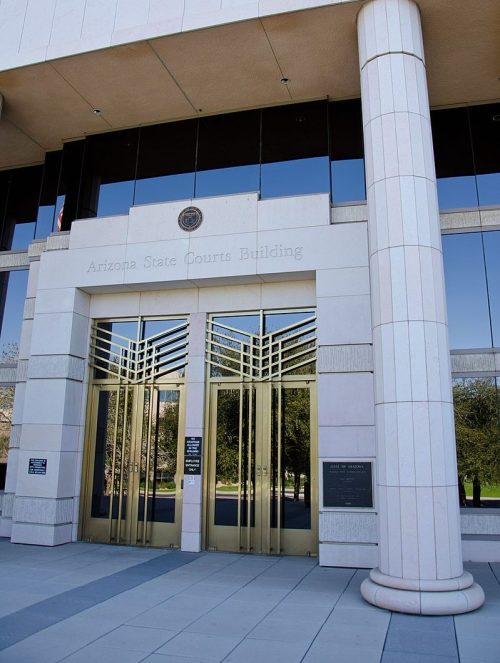The case, Planned Parenthood vs. Mayes/Hazelrigg is set to be heard Tuesday morning by the Arizona Supreme Court.
On June 24, 2022, the Supreme Court of the United States overturned a landmark decision from Roe v. Wade, removing a decades long right to abortion.
It gave that decision back to the states, but confusion about several states abortion rights was on the table. Along with two conflicting laws–one passed in 2022 that allows abortion through 15 weeks gestation and another, much older law that effectively bans all abortions unless the life of the pregnant person is at risk–work together to lay out Arizona’s abortion decisions.
“The Howell Code,” named after Judge William T. Howell, was written in 1864 and served as a way to govern Arizona after it first became a territory. This Code included a ban on abortions applicable to “every person” and carrying a criminal penalty of “not less than two years nor more than five years,” with an exception for a physician who “deems it necessary to produce the miscarriage of any woman in order to save her life.” Howell Code, ch. 10, § 45 (1864).
Previous Arizona Gov. Doug Ducey signed SB 1164 into law. The law outlaws abortions in the state after 15 weeks gestation, except in some medical emergencies. It is still not enforceable under Roe v. Wade.
In September 2022, a Pima County Superior Court Judge reinstated abortion, but an appellate court soon after blocked the enforcement of it.
In October Gov. Hobbs filed an amicus brief to the state Supreme Court in support of broader access to abortion.
The brief points out that, whatever the court decides, Arizona voters may have the chance to vote on the issue and could hit the 2024 ballots.
Arizona Attorney General Kris Mayes said she will not prosecute doctors for performing abortions. And Democrat Gov. Katie Hobbs issued an executive order to give Mayes – not county attorneys – the final say when it comes to abortion.
Arizona doctors can currently provide abortion care up to 15 weeks of pregnancy, forcing anyone past that point to travel out of state or seek a back room illegal procedure.
The ACLU’s website: Since the Supreme Court overturned Roe v. Wade on June 24, 2022, Arizonans have faced uncertainty about the ability to access abortion care. The decision caused devastating clinic closures and conflicting messages from the state’s top elected officials increased confusion. The ramifications of overturning Roe led to ongoing court battles to determine if a total abortion ban from 1864 would go into effect.
Several Republicans are against abortion and called abortion ‘the ultimate sin.’
“We need every woman that steps foot in an abortion clinic to know there are real options,” “The left says they’re pro-choice. They’re not. They’re for one choice. And they don’t give the women any other choices,” said Arizona Senate candidate Kari Lake.
The issue is now in the hands of the justices on the state’s highest court. You can watch the live arguments starting at 9:30 MST here: https://www.azcourts.gov/AZ-Supreme-Court/Livestream
Molly K Ottman Executive Editor/Journalist for Mountain Daily Star

